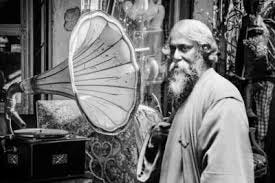I read Rabindranath Tagore “Crisis of Civilization” (1941) over the weekend and was struck by the extraordinary connections with the crisis of today’s multipolar world. It inspired me with hope, even though it was an essay written in the disillusionment of a great war and the final year of Tagore’s long, fruitful life. Perhaps, the world could find its way back to Tagore’s hopes and this writer’s themes: a world of symphonic, not discordant, civilisations, and an idea of politics as practical ethics grounded in human concern for others.
You can listen to my introduction to Tagore and my reading of this essay here on my podcast and here on YouTube.
I came late in life to read Tagore, indeed only in the last two months. But I was struck by the way this essay resonated with themes I write on. Tagore promoted dialogue between civilizations, and imagined forms of political or communal life that were not nations and were not empires.
He became a fierce critic of the West, and his essay questioned its future. Some of his ideas I hear echoes of in the fine historian Priya Satia, who writes on empires and nations, and indeed Emmanuel Todd, whose book Defeat of the West (still only available in French) arrived in my mailbox this week. I will be writing more on Tagore, Satia, and Todd over the coming weeks in both the Saturday and Wednesday posts.
For Substack Burning Archive members, you can read some more of my reflections on Tagore, and my favourite quotes from his essay “Crisis of Civilization” (1941).


